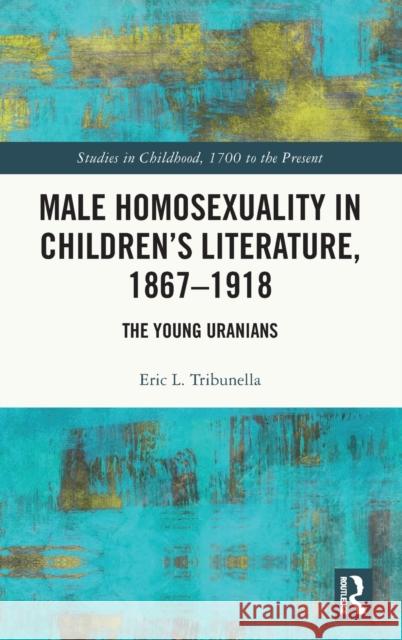Male Homosexuality in Children’s Literature, 1867–1918: The Young Uranians » książka
Male Homosexuality in Children’s Literature, 1867–1918: The Young Uranians
ISBN-13: 9781032441122 / Angielski
Male Homosexuality in Children’s Literature, 1867–1918: The Young Uranians
ISBN-13: 9781032441122 / Angielski
(netto: 723,00 VAT: 5%)
Najniższa cena z 30 dni: 680,04
ok. 16-18 dni roboczych.
Darmowa dostawa!
Read alongside major developments in English- and German-language sexology, work by Stevenson and other gay writers who wrote for children, can be understood as participating in the construction and dissemination of the discourse of sexuality and as constituting the figure of the young Uranian as central to modern gay identity.
In his 1908 cultural and historical study of homosexuality titled The Intersexes: A History of Similisexualism as a Problem in Social Life (1908), Edward Irenæus Prime-Stevenson includes a section on homosexual juvenile fiction, perhaps the first attempt to identify a body of children’s literature about male homosexuality in English. Known for pioneering the explicitly gay American novel for adults, Stevenson was also one of the first thinkers to take seriously the possibility and value of homosexual children, whom he called "young Uranians." This book takes as its starting point Stevenson’s catalog of homosexual boy books around the turn of the century and offers a critical examination of these works, along with others by gay writers who wrote for children from the mid-nineteenth century through the end of World War I. Stevenson’s list includes Eduard Bertz, Howard Sturgis, Horace Vachell, and Stevenson himself—to which Horatio Alger, John Gambril Nicholson, and E.F. Benson are added. Read alongside major developments in English- and German-language sexology, these boy books can be understood as participating in the construction and dissemination of the discourse of sexuality and as constituting the figure of the young Uranian as central to modern gay identity.











